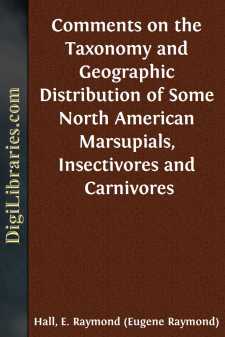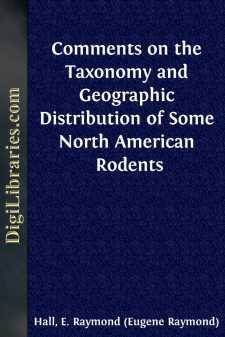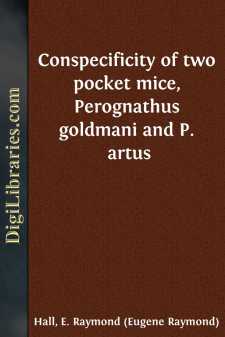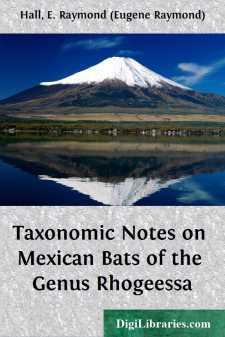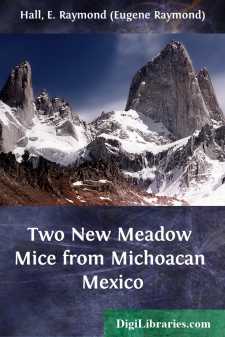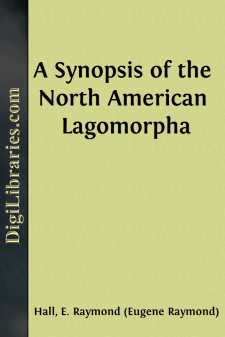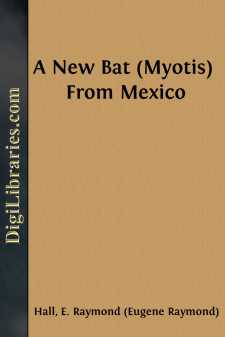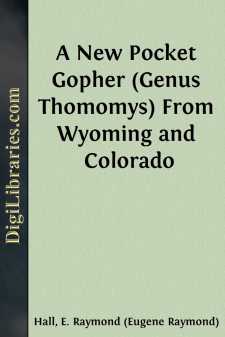Categories
- Antiques & Collectibles 13
- Architecture 36
- Art 48
- Bibles 22
- Biography & Autobiography 813
- Body, Mind & Spirit 142
- Business & Economics 28
- Children's Books 12
- Children's Fiction 9
- Computers 4
- Cooking 94
- Crafts & Hobbies 4
- Drama 346
- Education 46
- Family & Relationships 57
- Fiction 11828
- Games 19
- Gardening 17
- Health & Fitness 34
- History 1377
- House & Home 1
- Humor 147
- Juvenile Fiction 1873
- Juvenile Nonfiction 202
- Language Arts & Disciplines 88
- Law 16
- Literary Collections 686
- Literary Criticism 179
- Mathematics 13
- Medical 41
- Music 40
- Nature 179
- Non-Classifiable 1768
- Performing Arts 7
- Periodicals 1453
- Philosophy 64
- Photography 2
- Poetry 896
- Political Science 203
- Psychology 42
- Reference 154
- Religion 513
- Science 126
- Self-Help 84
- Social Science 81
- Sports & Recreation 34
- Study Aids 3
- Technology & Engineering 59
- Transportation 23
- Travel 463
- True Crime 29
E. Raymond (Eugene Raymond) Hall
The author has not yet completed their profile.
Author's Books:
Sort by:
In preparing maps showing the geographic distribution of North American mammals we have found in the literature conflicting statements and questionable identifications, which have led us to examine the specimens concerned with results as set forth below. Our studies have been aided by a contract (NR 161-791) between the Office of Naval Research, Department of the Navy, and the University of Kansas....
more...
In preparing maps showing the geographic distribution of North American mammals we have found in the literature conflicting statements concerning the subspecific identity of several rodents. Wherever possible, we have examined the pertinent specimens. Results of our examination are given below. Our studies have been aided by a contract (NR 161-791) between the Office of Naval Research, Department of...
more...
Perognathus goldmani Osgood and Perognathus artus Osgood from southern Sonora, northern Sinaloa and adjoining parts of Chihuahua and Durango, are two named kinds of the Perognathus intermedius group of pocket mice, of the subgenus Chaetodipus. Until now the two kinds have been treated in the literature as two species. In both goldmani and artus the upper parts are Ochraceous-Buff (capitalized color...
more...
Five skins with skulls of Rhogeëssa, collected by J. R. Alcorn in the states of Sonora and Nayarit of western Mexico, were recently received at the Museum of Natural History of the University of Kansas. Two other specimens of the same genus, collected by Walter W. Dalquest in the state of Veracruz of eastern Mexico, also are in the Museum of Natural History. With the aim of applying names to these...
more...
In preparing a list of kinds of mammals of which specimens have been saved from the Méxican state of Michoacán, two heretofore unrecognized subspecies of the Méxican meadow mouse, Microtus mexicanus, have been found. Names for these and descriptions are given below. Microtus mexicanus fundatus new subspecies Type.—Male, adult, skin and skull; No. 100637, Univ. California Mus. Vert. Zool.; 3½ mi....
more...
New name combinations for two kinds of Central American sloths that heretofore have stood in the literature as nominal species are given below, along with the evidence supporting their relegation to subspecific rank. Research assistance has been provided from a contract (NR 161-791) between the Office of Naval Research, Department of the Navy, and the University of Kansas. Bradypus griseus ignavus...
more...
The most popular small game mammal in nearly every part of North America is one or another of the species of rabbits or hares. The rabbit is one of the few species of wild game that still is hunted commercially and sold for food on the open market. The close association and repeated contact of man with these animals has resulted in his contracting such of their diseases as are transmissible to him....
more...
A single specimen of little brown bat from the northern part of the state of Veracruz seems to be of an heretofore unrecognized species. It is named and described below. Myotis elegans new species Holotype.—Female, adult, skin and skull, No. 88398 Museum of Natural History, The University of Kansas; 12-1/2 mi. N. Tihuatlán, 300 ft. elevation, Veracruz, Mexico; obtained on September 24, 1961, by...
more...
Among small mammals accumulated, from Wyoming, in the Museum of Natural History of the University of Kansas, specimens of the wide-spread species Thomomys talpoides are abundantly represented. Subspecific names are available for most of these, but specimens from the Sierra Madre Mountain Range of Wyoming and Colorado prove upon comparison to pertain to an heretofore unnamed subspecies which may be...
more...
When preparing distribution maps for a revised list of the Mammals of Kansas it became apparent to me that pocket mice of the species Perognathus flavescens from south-central Kansas and adjoining parts of Oklahoma were without a subspecific name. The new subspecies is named and described below. Perognathus flavescens cockrumi new subspecies Holotype.—Female, subadult (P4 moderately worn), skin with...
more...


